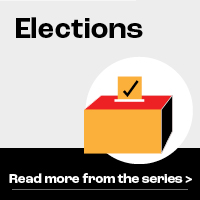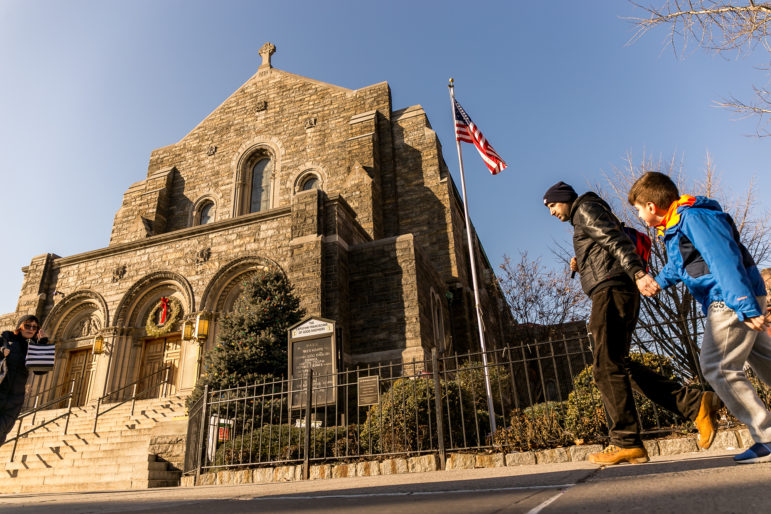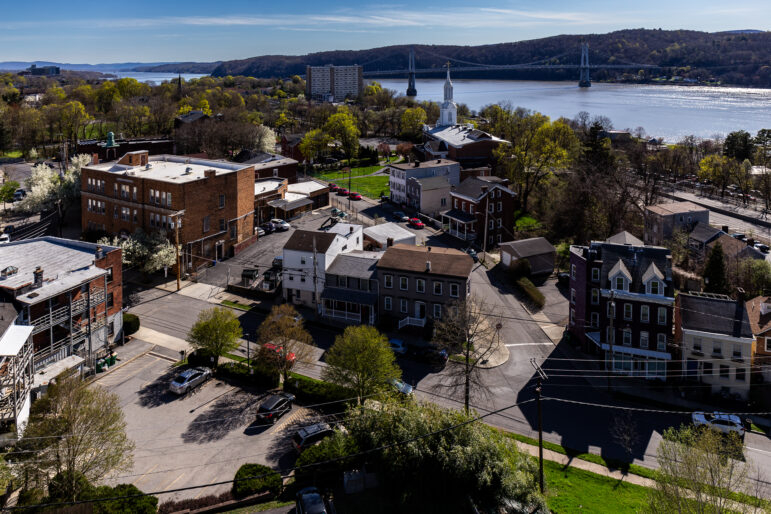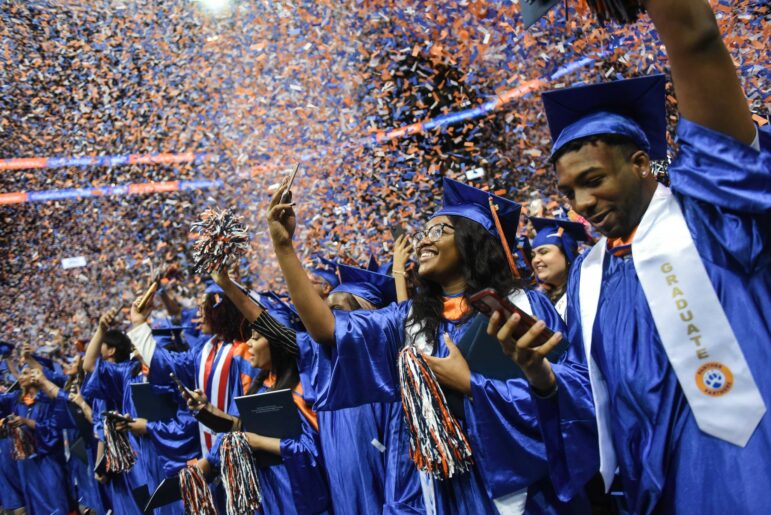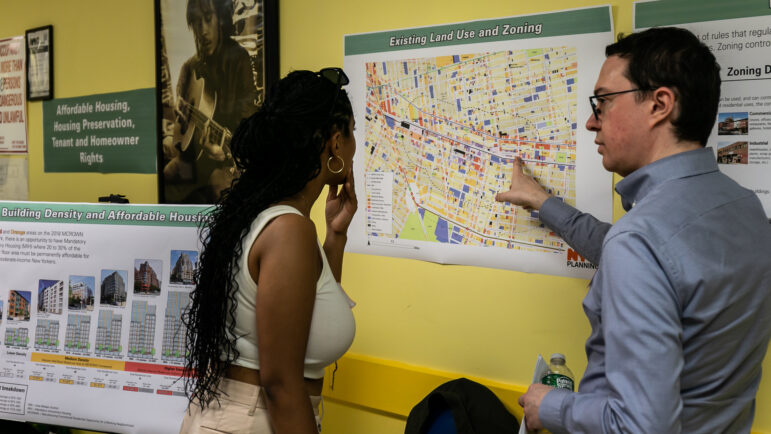A total of 16 candidates are on the ballots in March 23rd races to replace Andrew Cohen and Ritchie Torres.
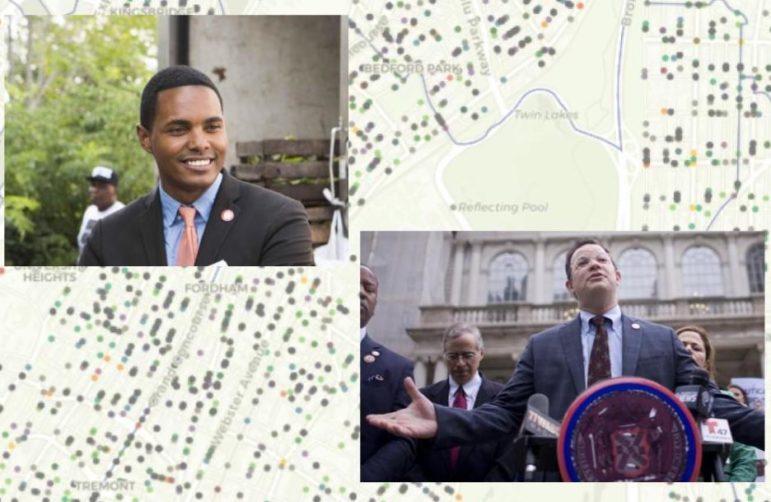
William Alatriste, New York City Council
The upcoming special elections in the Bronx will replace Ritchie Torres, now in Congress, and Andrew Cohen, now on the bench.On paper, the special elections on March 23 for two Bronx Council seats shouldn’t be worth the combined half-million dollars candidates have spent on the races so far, or the million more they have to dish out over the remaining days of the race.
After all, the winners of those contests only secure a spot in the Council through Dec. 31, a back seat to a legislative year in which, thanks to the regular elections later in the calendar, little legislating is likely to occur. It’s those regular elections — a June primary and a November general election — that will decide who gets to serve on the Council for a two-year term beginning next January.
But being an incumbent has its advantages, even if only for the three months between the special election and the primary in June which, given the stark Democratic registration advantage throughout the Bronx, is tantamount to election. And every advantage helps, especially in a year when generous matching funds, pandemic restrictions on campaigning and ranked-choice voting are creating crowded candidate fields and an unpredictable electorate.
Vacancies getting filled
The two March 23 races in the Bronx are the last in a set of five special elections that have begun to reshape the Council ahead of the regular 2021 races, in which more than two dozen seats will turn over thanks two term limits. Early voting begins March 13.
Andrew King of the northeast Bronx, who was ejected from the Council in October, was replaced by a Dec. 22 special. In Queens, Rory Lancman, who joined the Cuomo administration, and Donovan Richards, who became borough president, had their seats filled by special elections on Feb. 2 and 24, respectively.
In District 11, which covers the northwest Bronx and includes Bedford Park, Kingsbridge, Riverdale, Norwood, Van Cortlandt Village, Wakefield and Woodlawn, the election is being held to replace Andrew Cohen, who represented the area from 2014 until winning election to a judgeship last year. Six people are contesting that race.
As his second term was winding down, Ritchie Torres vacated the District 15 seat when he won election to Congress. The race for that seat—which represents Bedford Park, Fordham, Mount Hope, Bathgate, Belmont, East Tremont, West Farms, Van Nest, Allerton and Olinville—has attracted 10 candidates.
To learn more about any of the candidates in either race, check out the links provided on our special elections tracking page.
District 11: Six candidates, one big name
Even though most of this district doesn’t look much like Riverdale, control of the Council seat has long resided in that leafy and fairly affluent neighborhood. Three of the four Councilmembers since 1973 have hailed from Riverdale. The fourth and longest-serving member, June Eisland, was from the isolated and then overwhelmingly Irish enclave of Woodlawn. This year’s special election field is also Riverdale-skewed with three of the six candidates (Eric Dinowitz, Jessica Haller and Kenneth Pazmino) hailing from that area, and two others (Mino Lora and Daniel Padernach) also living in the western side of the district. Carlton Berkley is from Williamsbridge, at the district’s far eastern edge.
Dinowitz, a special education teacher, has a name that is both an asset and an issue. As the son of long-serving Assemblyman Jeffrey Dinowitz, he enjoys broad name recognition, and he’s gained the support of the political establishment, including Bronx BP Ruben Diaz Jr., Congressman Adriano Espaillat, Torres and the Benjamin Franklin Reform Democratic Club. The club’s endorsement sparked a protest by other candidates in the race, some of whom have scorned the formation of a new Bronx political dynasty. Dinowitz has faced constant questions about whether he is his own man.
Dinowitz is not the only formidable candidate in the race. Mino Lora, a nonprofit theater executive, has the support of the Working Families Party and Communication Workers of America. Former Manhattan Borough President Ruth Messinger and the League of Conservation Voters are backing tech entrepreneur Jessica Haller. Attorney and longtime Community Board 8 member Daniel Padernacht has the support of former Assemblyman Michael Blake.
Those four candidates have each received more than $100,000 in public matching funds. The two other candidates—Berkley, a retired NYPD detective who has previously sought two other Council seats, and videographer Kevin Pazmino—have not qualified for public funds (in fact, Pazmino has yet to report any fundraising).
With the exception of Pazmino, a conservative, there is a fair amount of ideological overlap among the candidates. This was displayed at a Feb. 14 debate moderated by City Limits, although subtle differences did appear.
Berkley supports NYPD reform and is passionate about reforming the way affordable-housing rents are set, but does not discuss policy in detail. Padernacht hews closer to the center—opposing any reduction in the police budget and expressing an openness to budget cuts. In a nod to issues well beyond the Council’s portfolio, his campaign website expresses his support for the people of Israel “as they work toward peace for all people in the Middle East.”
Dinowitz articulates progressive views—he supports non-citizen voting and reducing the role of the police—although his platform is not as extensive as Lora’s or Haller’s, which cover topics like coastal resiliency, food justice, language equity and cultural justice.
District 15: Outside money playing a small role
Five of the candidates running here have raised less than $10,000 and failed to qualify for public matching funds. One of them is Kenny Agosto, an aide to State Sen. Jamaal Bailey and previously a Democratic district leader and state committeeman. This group includes Ariel Rivera-Diaz, a Republican who works for the Board of Elections; Bernadette Ferrera, president of the Van Nest Neighborhood Alliance; Altagracia Soldevilla, a community organizer with the Dominican PRM political party; and Jose A. Padilla, Jr., who has served as Democratic district leader and county committeemember.
The better-positioned candidates include Latchmi Gopal, a community organizer and Bernie 2020 veteran whose platform emphasizes the need for universal healthcare and stronger public hospitals. She’s only raised $19,000 but received $73,000 in matching funds to give her enough for a credible campaign.
Four candidates received the maximum $135,375 from the Campaign Finance Board. One of them is Oswald Feliz, a tenant lawyer, who has focused on schools and quality-of-life issues.
Elisa Crespo, who works at the Bronx borough president’s office, advocates for a public jobs program and a return to tuition-free CUNY. She boasts endorsements from TenantsPAC, the Stonewall Democrats, State Sens. Julia Salazar and Brad Hoylman, Assemblymember Harvey Epstein and Councilmembers Ben Kallos, Helen Rosenthal, Antonio Reynoso, and Jimmy Van Bramer.
John Sanchez, the district manager for Community Board 6, has the backing of the pro-development group Open New York as well as the New York League of Conservation Voters. His platform calls for getting more local investment from the massive anchor institutions in the district—Fordham University, the Botanical Garden, the Bronx Zoo and St. Barnabas Hospital. His education platform gets very specific: He wants to “standardize phonics instruction so every student enters schools with the same core set of skills.”
It’s risky to name a frontrunner but indications are it’s Ischia Bravo, who was once the executive director of the Bronx Democratic Party and challenged one-time party leader Jose Rivera in a 2016 Assembly race. She told a forum hosted by City & State that her candidacy is about “making sure that my neighbors are not suffering or continuing to suffer from the same inequities I did being born and raised in NYCHA where people forget you, where you have no heat, where you have no hot water, where you suffer from food insecurities.” At last count, Bravo had the most money on hand (about $127,000) and she has support from a long list of Bronx electeds and a litany of organized labor: 32BJ, 1199, DC37, the UFT and the Nurses Association.
But there is another factor in the race, and it’s not one of the campaigns: It’s a political action committee called New Yorkers for a Balanced Albany which has spent about $9,000 on ads supporting Sanchez. Though the PAC is run by operatives from StudentsFirst New York, a pro-charter lobbying group, it does not mention charter schools in its ad, instead focusing on Sanchez’s calls for at-home COVID-19 testing kits and more housing construction. (Sanchez did work for a charter-school group earlier in his career.)
New Yorkers for a Balanced Albany, which by law cannot coordinate with Sanchez’s campaign, is funded by generous donations from hedge-fund figures Anthony Davis ($5,000) and Paul Tudor Jones ($10,000)—and a ginormous contribution from Walmart fortune heir Alice Walton. The $800,000 check she wrote from her Arizona home is one of the largest single cash infusions in the history of the New York City campaign finance system. While New Yorkers for a Balanced Albany has spent modestly in the 15th district race—and, so far, not gone negative on any candidate—it has the money to be a significant force in other contests this election year.
Murphy is the 2021 Wayne Barrett Fellow with Type Investigations


